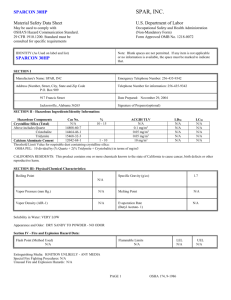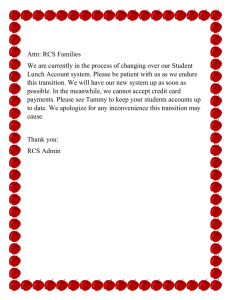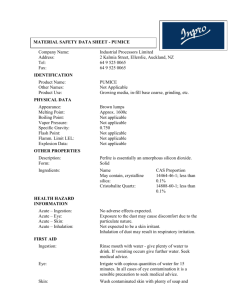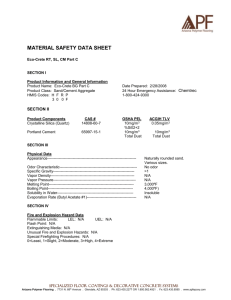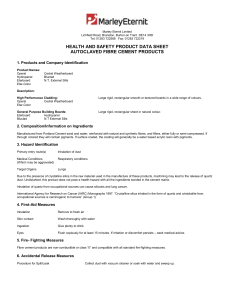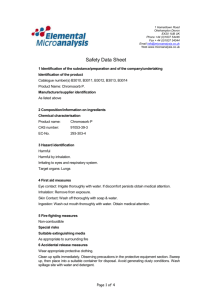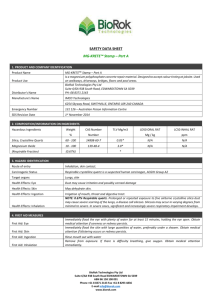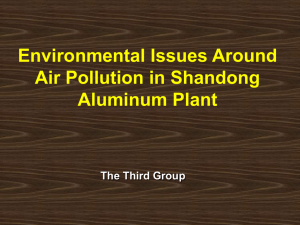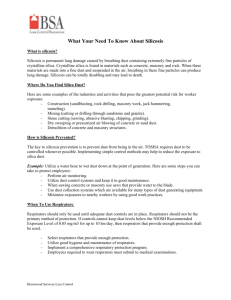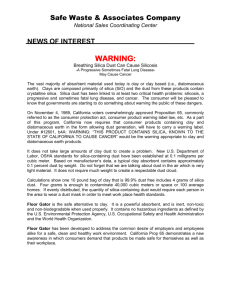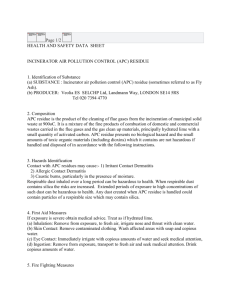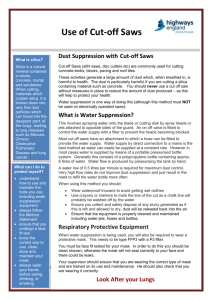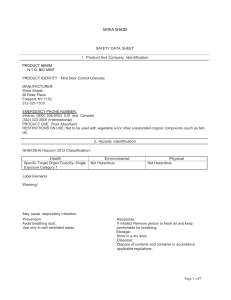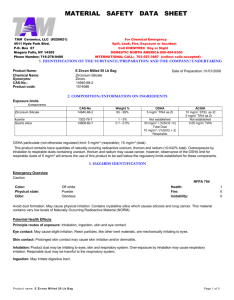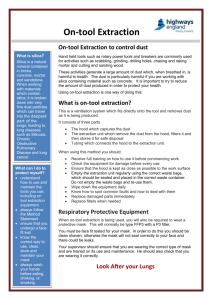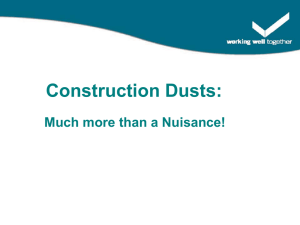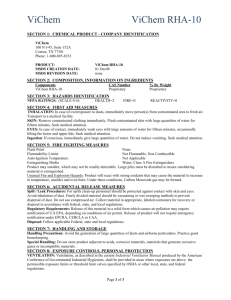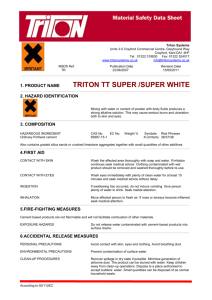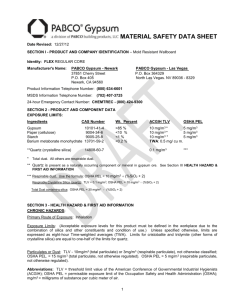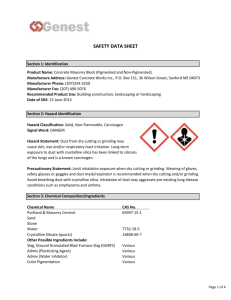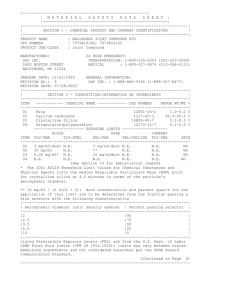suitable - Safequarry.com
advertisement
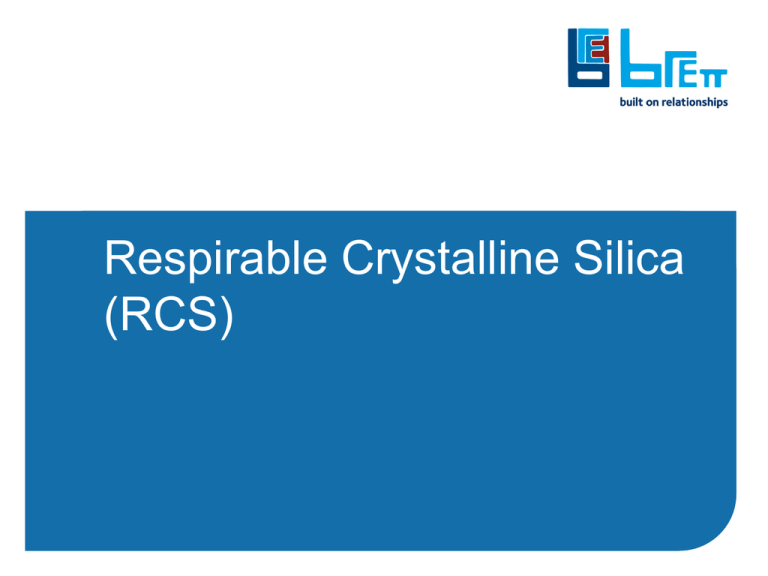
Respirable Crystalline Silica (RCS) RCS • • • • What is it? Why should we be concerned about it? Where might we be exposed to it? What can we do about it? – Best practice – Monitoring What is RCS? • RCS stands for respirable crystalline silica • Very basically this means silica dust that can get into the lungs • Silica is a mineral commonly found in high proportions in sand & gravel– however it’s not too easy to breathe it in is this natural form! Why should we be concerned about it? • If silica dust is inhaled into the lungs it can stay there for many years • Silica dust in the lungs can cause silicosis – people with this are at increased risk of tuberculosis and lung cancer Why should we be concerned about it? • It can also cause chronic,obstructive pulmonary disease – this can causes breathlessness, often with a cough • Because of these concerns the exposure level has recently been reduced to 0.1mg/m3 Where might we be exposed to it? • In it’s natural state within a damp aggregate it is unlikely that we can breathe in sufficient quantities to cause a problem • However when in a dust form – e.g. crushing, bagging, dried silt, cutting product, this may be hazardous What can we do about it? - Plant • Minimise dust generation! e.g. – Damp down roads in dry conditions – Keep water sprays on crushers • Contain the dust in an area excluded to people, that can be cleaned/dampened before entry, e.g. – Housing around a crusher What can we do about it? - Plant • Reduce exposure by filtering – e.g. ensure shovel air filters are maintained in a good condition • Ensure that drivers are aware of good practice and adhere to this – e.g. operate the shovel with the door closed and windows shut What can we do about it? - Plant • Reduce exposure by extracting the dust by use of local exhaust ventilation (LEV) – make sure you keep these tested! What can we do about it? - Plant • Finally, if all else fails & people still have the potential to be exposed to RCS then use suitable PPE, e.g. – Air stream helmets – Appropriate dust mask, correctly worn! What can we do about it? - People • Carry out personal & plant dust monitoring & review the results • Carry out occupational health (OH) screening as recommended by our OH suppliers Summary • RCS is a potential killer • Review the risk at your site from previous monitoring results • Minimise generation of dust • Minimise personal exposure • Review OH results
